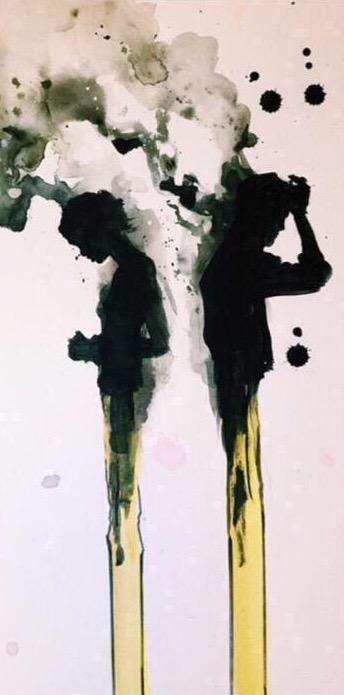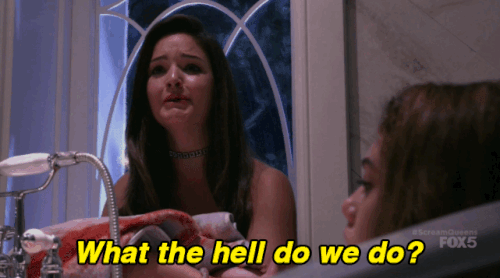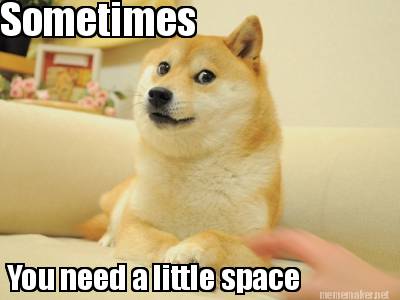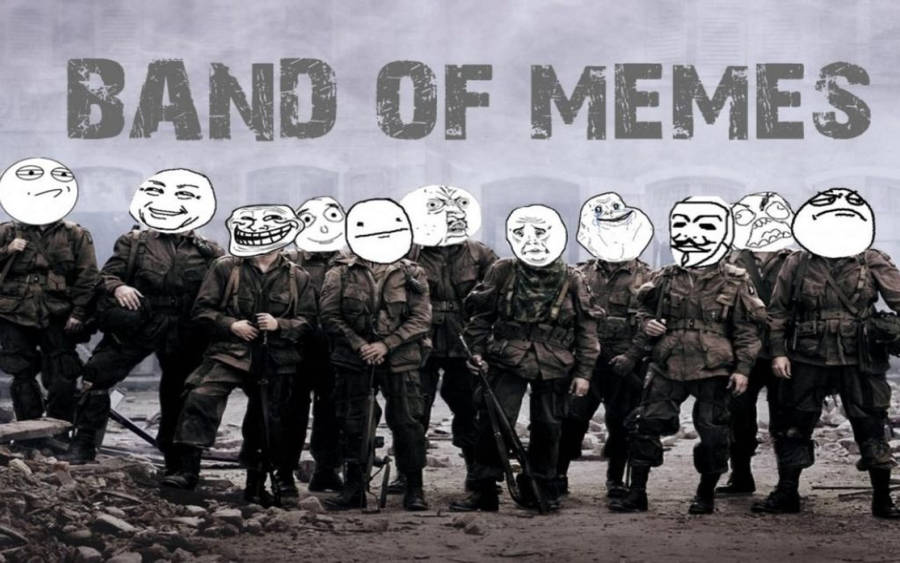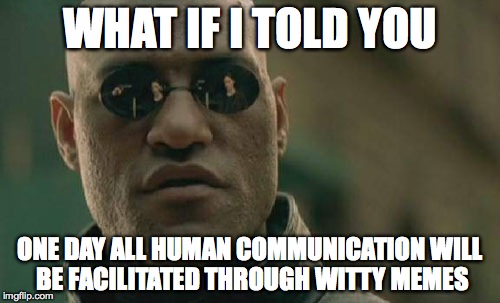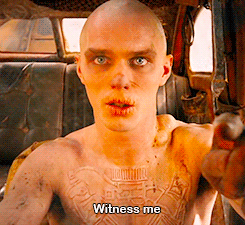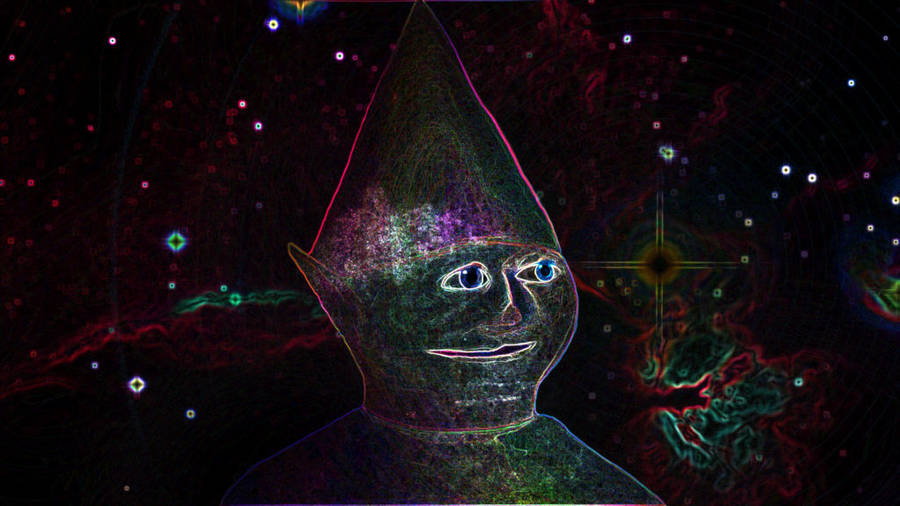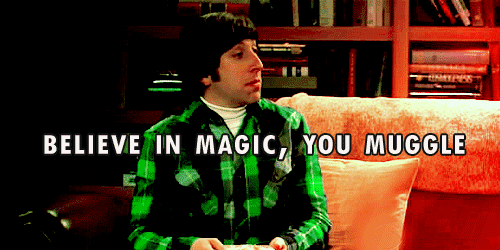Crash and Burn: Self-Care in Gaming
Ever log in to your G+ and cringe at what's going on? Ever watched your friend get trolled, wanting to help but also fearing for your own mental health at the same time? Ever played in a game that broke your soul enough you just couldn't anymore? Ever stared at your character sheet, exhausted inside, and thought "where do we go from here?" (Honestly you probably started humming the Buffy song, too, and that's okay.)
Gaming can be a viciously emotional experience for some folks. If it's a form of your self care, like it is for me, it can be devastating as well to find yourself wishing there was a game that night. If you're an industry professional, new or veteran, it doesn't matter, you've experienced the drama of the industry on some level. Whether it was being a support person, involved yourself, or just watching from the sidelines, it was probably an exercise in control or at least emotionally draining on some level.
From the many, many gamers, game designers, and facilitators I know, most of us seem to struggle with one mental health concern or another. Add on to that the extreme social nature of gaming, plus the sometimes heavy content, and the problematic or sometimes destructive nature of our community, most of us end up tapping out or needing to tap out at some point.
So how do we, as gamers, acknowledge that our hobby can be toxic, uplifting, inclusive, exclusive, encouraging, and horrible all in the same breath? How do we navigate that minefield and how do we know when to say "Hey, I need a minute"? What does taking that minute look like?
Recently I was one of the main facilitators for Fan Expo Canada's RPG track, along with Rob and Rach. We make one hell of a fucking team. We all have our own interesting anxiety triggers and tendencies. We've learned to give each other space, to support each other, to validate each other, and to communicate really well. This has resulted in some fucking awesome events and RPG tracks and ambitious movements towards great things.
But after Fan Expo, despite the great support I have, I felt like I had been hit by a truck. I didn't want to game. I was exhausted. Despite having work to do for writing, I just didn't want to. Going to work was hard. Doing house work was hard. After two weeks of being in the gross rut, I knew I needed to start forcing myself to do things. This isn't to say people with serious depression can just force themselves to do things, but I am fortunate enough that if I don't spiral too badly, I can force myself.
Everyone recovers and deals with things differently. Burning out is common. So how can we, as a community, ensure there's space for people when they do burn out? How can we be good friends and allies to each other? How can we ensure we're not causing burn out? And how can we keep an eye on ourselves and help ourselves?
Naturally, those are all complicated, intense questions. I don't like asking boring ones. If there's nothing else I've learned from Apocalypse World, it's ask questions like crazy. So I went to social media to see what kind of things are burning out our community. Here's some of the answers I got:
"Struggling to play RPGs that require memory work when my mental health makes that difficult, but playing because I love the scenes and stories." "How much GMing stresses me out." "Finding people to be vulnerable with." "Not closing myself off when inevitable misunderstandings happen." "Finding people to play the weird little games I love, or playing stuff I don't love just so I can play." "Overcoming social conditioning that tells me not to be emotional in play." "Feeling confident in my work, even when I'm threatened with sexual violence." "Struggling with social spoons, and faking it when I don't have enough." "Playing with people who aren't as invested as I am." "Blaming myself for when something fails." "Trying to be outgoing when it's not really my nature to be." "Scheduling."
These were all from different people. Many of these are struggles that most of us have gone through. The frustration of scheduling. The exhaustion and stress of being a GM. The disappointment when you're much more invested in a game than the others around you. But what about the ones we're not all familiar with? How many of us have been threatened with rape because of the work in gaming we're doing? How many of us struggle with mental health or being differently abled?
For myself, I struggle with anxiety, depressive tendencies (it's been a few years since I had a really bad episode), imposter syndrome, and doing so much emotional labour I often don't even have the capacity to help my partner or myself. I've been on the receiving end of threats and harassment and stalking. I've been on the side of feeling concerned about being vulnerable. But I don't understand what it feels like to have toxic masculinity shoved up inside me so far I can't think of how to be emotional.
All of us struggle through different things. Sometimes the emotional labour of dealing with the gaming industry, as I believe is what I felt after Fan Expo, makes me and others incapable of gaming. Gaming is a lot of work, even though we do it for fun and entertainment. It can be draining, emotionally and physically. It can make us feel depressed and exhausted and upset. Writing about gaming, especially as a minority who comes under attack for it, is incredibly draining on one's ability to actually game.
To help ourselves we can do some simple things that will keep us from staying down. It's okay to fall apart. It's staying apart that can really get to you. In my nearly twenty years of gaming, and ten years of facilitating, and my entire life of being the one to do a lot of emotional labour, here's what I learned.
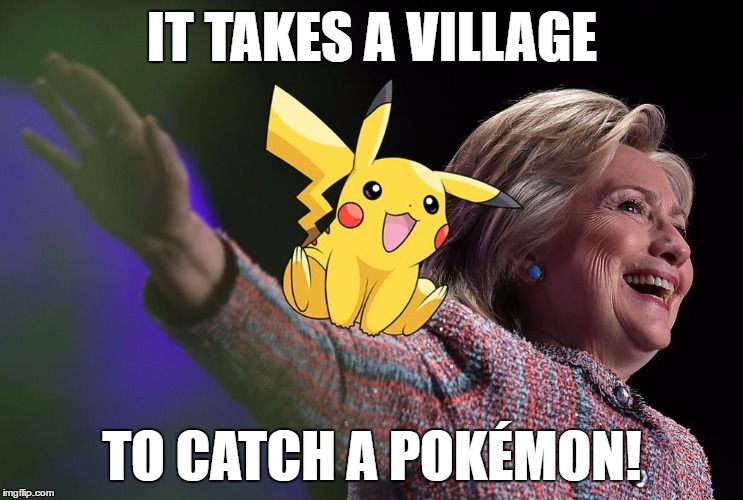 1) Find your Village
1) Find your Village
This is actually the hardest of all the things, so it should probably go last, but because it'll also take you the longest, I'm putting it first. You can substitute whatever word you want for village. Community. Clan. Family. It doesn't matter what you want to use, so long as you find them. Your village is the group of people you can turn to who will support you, make space for you, validate you, listen to you, and help you if you want the help. They're people who get it. They may not understand exactly what you're going through, but they understand that it's shitty and that you need some extra love and care.
These people probably will be friends, fellow gamers, community leaders, or some person you've found on G+ who you really get. Keep in mind, you won't always get along with your entire set of villagers, but you should keep a good group of people who are willing to put aside differences in opinion for the sake of each other's health and stability. You won't know you've found your village until you've managed to stumble a few times and noticed the same group of folks helping you back up time and again. You might even notice you're helping them up when they fall.
If you're very lucky, your village will also be people you can bounce ideas off of, game with, playtest with, laugh with, and do awesome things with. Everyone in your personal village of care may not be in each other's villages, too. You may have a few people in one friends circle, a few in another, or maybe they're all from one part of your life. It's not important. What's important is you can trust in these amazing people to support you.
2) Make Space for Yourself
Most of the time I don't know I've hit my limit until I'm well past it and I've committed to too much already. One of the best things you can do for yourself is identify what you're capable of dealing with and what you're not. Recognize what sets you off and what drains you, and give yourself permission to say no to things. Give yourself room to feel like shit. Accept that you're not going to be okay all of the time. If something shitty is happening, let yourself feel it. It's okay to feel things. It's okay to have shit days.
If something in your game or online is trying to kill you, don't let it kill you. Walk the fuck away. Even if it's only for five or twenty minutes. Watch an episode of something. Take a shower. Brush your teeth or your hair. Wash your face. Try eating something. Nap, if you can. Make space for your basic self care techniques so that you can still function, within reason, as a person. If you recharge by sitting in a dark room listening to music, then do that.
Validate your own emotions. Don't beat yourself up, gaslight yourself, or abandon yourself. It's easy to do these things. If you're having a hard time stopping your own spiral of thoughts, it's time to check in with your village and say you need someone to help you. Unpack what you can with them and with yourself. Then do what you can to feel okay. Not to feel better. Just to feel like you'll get through it. Emotions are complicated and burn out is intense. You're not going to feel better right away. And that's okay.
3) Find Ways To Recharge
Gaming is so amazing. It's one of my primary ways to recharge. But what do you do when gaming is what's burning you out? It's kinda important to have things outside of the emotional and intense hobby we have that will help you feel better. For me, it's watching Brooklyn Nine-Nine or hell, even My Little Pony. I take comfort in quiet moments and yes, writing and gaming.
Often, I'll take a break from whatever I'm playing that's exhausting me, or disengage from whatever online is sucking my soul out, and play an rpg that's lighter than normal. Golden Sky Stories comes to mind. I'll also play some video games, go for a walk, hug my dog or my partner, read a book I really enjoy, or just listen to some music.
Whenever you hit burn out, disengage, make some space for yourself, and then go try to find another way to recharge. Even if it's just reading another RPG book for awhile. Put your mind in a different space. If that fails, ask someone in your village for some help with distractions. Even looking at cute animal pictures will help you feel better. Connection is our main way for emotional recovery. Reaching out to just chat about something light or silly can do a tonne of good when you're feeling burnt out.
4) Don't Feel Guilty
Many many people feel like they're a burden on others when they reach out. I don't know how many times people have apologized to me because they unloaded on me and needed someone to hear them. I don't apologize when I ask for help. Mostly because I ask for help first, but also because I know I would do the same for them if our roles were reversed. If you're emotionally exhausted and crashing, the last thing you need to do is make yourself feel worse.
It's okay to burn out. It's okay to crash spectacularly. It's okay to fuck up. It's okay to suck once in awhile. It's okay to tap out. It's okay to not have any spoons. It's okay to walk away from shit. It's okay to send your friends in when you're not able to do more. It's okay be unable. You're worth more than whatever fuckery is going on that's causing you to burn out. You're valid. You're important. You're loved.
We've worked very hard as a culture to tell people to suck it up and not connect with other people and not talk about their feelings. I'm telling you that's bullshit and if you're not okay, then you're not okay. It's okay to not be okay. There's no need to further hurt yourself by telling yourself that you suck for needing to connect and recharge. It happens to us all. And that's okay too.
5) Communicate Your Needs
With all of these, the big point is always going to be stay connected to people who help you and tell the ones who are burning you out that you need space. If they're decent folk, they'll understand and give you the space that you need. If they're not, hump 'em. You're worth more than some douche canoe not letting you breathe. Respecting and helping each other should be essential in any community, and especially in a community that is sharing emotional and intense experiences like gaming together.
While running away and disappearing may feel like a good idea, it will limit the help you have available to you and may isolate you. Taking a moment to breathe, shoot and email or instant message off about how you're burnt out and need to recoup, and then withdrawing is usually the best option (but not always). Take a moment to let who you can and want to know about what's going on, or simply that you need to tap out.
When you do eventually get around to recruiting some allies (villagers) to your side, let them know clearly what you need. "I just need to blow off some steam." "I just need to talk about something else for awhile." "I just need you to hear me out and see if I'm right." "I just need to hear that I'm worth something and that I've got this." Reaching out for what you need pretty much guarantees (if you've chosen those allies well) that you'll get exactly what you need.
Now, what if you're not the one who needs anything. What can we, as a community, do to make the world a better place for each other? What are our responsibilities? And better yet, how do we become a better ally and villager?
1) Witness
One of the first things to do is bear witness to the struggles of each other. There's a reason everyone yells Witness at each other now whenever anything Fury Road related comes up. We want to be witnessed. We want our suffering to be seen, acknowledged, and validated. As friends, villagers, and allies, we can look at our friend who needs us and say "I see you. I see that you're hurting." Knowing that someone is seeing the tragedy that is befalling you can be incredibly relieving. It often makes someone who's isolated feel less alone and opens up the option for conversation and connection.
When someone does something fabulous, tell them it's fabulous. When someone is struggling, check in. Find ways to show you care about them, are witness to their struggles, and that they don't go unnoticed. It's incredibly validating to hear someone else go "Wow, that looks crappy. Is there anything I can do to help you?"
2) Hold Space
 Holding space is something we talk a lot about in health care and in birth work. Part of that is bearing witness, and part of that is gentleness and caring and offering without overstepping boundaries. It's sitting there in the silent moments and not feeling awkward or needing to fill it. It's listening attentively and offering kindness and validation. This means you don't offer solutions to the problems being presented. You validate how the person is feeling: "That sounds really awful. That's shitty. That must really suck, I'm sorry to hear that." You don't ever say you understand how they feel and start talking about your experiences, because it's not about you.
Holding space is something we talk a lot about in health care and in birth work. Part of that is bearing witness, and part of that is gentleness and caring and offering without overstepping boundaries. It's sitting there in the silent moments and not feeling awkward or needing to fill it. It's listening attentively and offering kindness and validation. This means you don't offer solutions to the problems being presented. You validate how the person is feeling: "That sounds really awful. That's shitty. That must really suck, I'm sorry to hear that." You don't ever say you understand how they feel and start talking about your experiences, because it's not about you.
It also means not making it about you or your experiences. You're letting the person talk or just be and it's about them in this moment. You can offer physical comfort if you are physically present, such as a hug or a back touch, but ask for and be mindful of their body language. If they reject your offer of comfort, do not take it personally. Everyone copes differently.
3) Making Space
This is different than holding space. Making space means having expectations set ahead of time, it means invoking a space that people know exists without it needing to be constantly expressed. It's finding ways to make your convention, game, or table more inclusive. It's rejecting those in the community that are harmful, even after people have reached out repeatedly. It's prioritizing inclusivity and safety over reputation and the way it's been done. Making space is often the role of facilitators, but it shouldn't be.
It's everyone's job in a community to ensure that the space is constantly getting better. It's our job to find and create space for new voices, minority voices, and silenced voices. We need to ensure that those spaces are safe, that there won't be hurtful, harmful, or problematic people just waiting to crush others. Partly, this is calling each other out on our own shitty behaviours, and partly it's taking the steps to ensure toxic people are removed.
4) Love
I was at a class one time learning about coping strategies for fear and other negative emotions, especially anxiety and trauma, when my teacher began to tell of a story of someone who frightened her. The person hadn't done anything in particular, he just gave her the creeps. Her solution? Love him up. She went out of her way to send love towards that man. Turns out, he wasn't scary. Not that this solution should be applied to everything. But, it does need to be discussed.
As a doula, I was taught to walk into every room with open love and open acceptance. When I enter into a room with a birthing person, I don't start judging all of their decisions and voice my opinion about what they're doing wrong nor do I start cursing about the doctor who's being pushy or the bossy nurse. I smile. I hold the labouring person's hand (after I get consent) and tell them they're doing amazing, because they are. I love them up. Open love and open acceptance, with an assumption of good intention, goes a long way in a community.
This means believing the person you're talking to, and the members of your community that aren't obviously toxic, are acting with best intention. They are doing what they believe to be the best in the situation. Open love and acceptance means you take them for who they are at that moment and you appreciate their struggle and what they're going through. Even if you think they did something stupid, they don't need to hear that and that's not acting with good intention or love. Always act with these things. Respect breeds respect. Love breeds love. Be gentle with each other. Be kind.
5) Integrity
A village cannot function if members aren't acting with integrity. When we stand by our core values, face the mirror, and gently but firmly assert our values when they are disregarded, we're acting with integrity. If we want to say we are an inclusive, mindful, loving, and creative space, we need to act within the scope of that to be able to say we truly value those ideals. What our ideals are, and what they should be, remains murky.
But when we're acting as a village, or ally, we're acting with integrity towards caring for each other and caring for the community. Luckily, most of us are good communicators, even if we're choosing to say shitty things, we usually say them quite clearly. Acting with integrity in what we believe in shouldn't be hard. Sometimes the water gets muddy and we have a hard time figuring out what's going on or who said what or why someone's hurt. The important thing is someone's hurt.
Let's decide our values, gamers. Let's create our values. And let's walk through our community with integrity. Ensure that we are exemplifying those values with love and honesty and kindness.
Today I had a good day. I connected with great clients. I had a good day with my partner. And then my anxiety crashed and I laid in bed for two hours crying. I went for a walk. I ate some food. I snuggled with my partner. I pet my cat. I chatted with a couple friends. I activated a few people in my own village. I am not perfect. I am not ideal. I am surviving because of so many wonderful people.
Take care of yourselves, gamers. Hopefully some of this will help. Maybe none of it will. But I do sincerely hope that we, as a community, can start practicing our values and keeping our integrity, even when hell breaks loose on G+. Remember to love yourself, be kind with each other, and be a badass out there. It's hard out there. Let's make it easier.
Gaming can be a viciously emotional experience for some folks. If it's a form of your self care, like it is for me, it can be devastating as well to find yourself wishing there was a game that night. If you're an industry professional, new or veteran, it doesn't matter, you've experienced the drama of the industry on some level. Whether it was being a support person, involved yourself, or just watching from the sidelines, it was probably an exercise in control or at least emotionally draining on some level.
From the many, many gamers, game designers, and facilitators I know, most of us seem to struggle with one mental health concern or another. Add on to that the extreme social nature of gaming, plus the sometimes heavy content, and the problematic or sometimes destructive nature of our community, most of us end up tapping out or needing to tap out at some point.
So how do we, as gamers, acknowledge that our hobby can be toxic, uplifting, inclusive, exclusive, encouraging, and horrible all in the same breath? How do we navigate that minefield and how do we know when to say "Hey, I need a minute"? What does taking that minute look like?
 |
| Yes. Those are Breakout t-shirts. Shush. |
But after Fan Expo, despite the great support I have, I felt like I had been hit by a truck. I didn't want to game. I was exhausted. Despite having work to do for writing, I just didn't want to. Going to work was hard. Doing house work was hard. After two weeks of being in the gross rut, I knew I needed to start forcing myself to do things. This isn't to say people with serious depression can just force themselves to do things, but I am fortunate enough that if I don't spiral too badly, I can force myself.
Everyone recovers and deals with things differently. Burning out is common. So how can we, as a community, ensure there's space for people when they do burn out? How can we be good friends and allies to each other? How can we ensure we're not causing burn out? And how can we keep an eye on ourselves and help ourselves?
Naturally, those are all complicated, intense questions. I don't like asking boring ones. If there's nothing else I've learned from Apocalypse World, it's ask questions like crazy. So I went to social media to see what kind of things are burning out our community. Here's some of the answers I got:
"Struggling to play RPGs that require memory work when my mental health makes that difficult, but playing because I love the scenes and stories." "How much GMing stresses me out." "Finding people to be vulnerable with." "Not closing myself off when inevitable misunderstandings happen." "Finding people to play the weird little games I love, or playing stuff I don't love just so I can play." "Overcoming social conditioning that tells me not to be emotional in play." "Feeling confident in my work, even when I'm threatened with sexual violence." "Struggling with social spoons, and faking it when I don't have enough." "Playing with people who aren't as invested as I am." "Blaming myself for when something fails." "Trying to be outgoing when it's not really my nature to be." "Scheduling."
These were all from different people. Many of these are struggles that most of us have gone through. The frustration of scheduling. The exhaustion and stress of being a GM. The disappointment when you're much more invested in a game than the others around you. But what about the ones we're not all familiar with? How many of us have been threatened with rape because of the work in gaming we're doing? How many of us struggle with mental health or being differently abled?
For myself, I struggle with anxiety, depressive tendencies (it's been a few years since I had a really bad episode), imposter syndrome, and doing so much emotional labour I often don't even have the capacity to help my partner or myself. I've been on the receiving end of threats and harassment and stalking. I've been on the side of feeling concerned about being vulnerable. But I don't understand what it feels like to have toxic masculinity shoved up inside me so far I can't think of how to be emotional.
All of us struggle through different things. Sometimes the emotional labour of dealing with the gaming industry, as I believe is what I felt after Fan Expo, makes me and others incapable of gaming. Gaming is a lot of work, even though we do it for fun and entertainment. It can be draining, emotionally and physically. It can make us feel depressed and exhausted and upset. Writing about gaming, especially as a minority who comes under attack for it, is incredibly draining on one's ability to actually game.
So what can we do?
 1) Find your Village
1) Find your VillageThis is actually the hardest of all the things, so it should probably go last, but because it'll also take you the longest, I'm putting it first. You can substitute whatever word you want for village. Community. Clan. Family. It doesn't matter what you want to use, so long as you find them. Your village is the group of people you can turn to who will support you, make space for you, validate you, listen to you, and help you if you want the help. They're people who get it. They may not understand exactly what you're going through, but they understand that it's shitty and that you need some extra love and care.
These people probably will be friends, fellow gamers, community leaders, or some person you've found on G+ who you really get. Keep in mind, you won't always get along with your entire set of villagers, but you should keep a good group of people who are willing to put aside differences in opinion for the sake of each other's health and stability. You won't know you've found your village until you've managed to stumble a few times and noticed the same group of folks helping you back up time and again. You might even notice you're helping them up when they fall.
If you're very lucky, your village will also be people you can bounce ideas off of, game with, playtest with, laugh with, and do awesome things with. Everyone in your personal village of care may not be in each other's villages, too. You may have a few people in one friends circle, a few in another, or maybe they're all from one part of your life. It's not important. What's important is you can trust in these amazing people to support you.
2) Make Space for Yourself
Most of the time I don't know I've hit my limit until I'm well past it and I've committed to too much already. One of the best things you can do for yourself is identify what you're capable of dealing with and what you're not. Recognize what sets you off and what drains you, and give yourself permission to say no to things. Give yourself room to feel like shit. Accept that you're not going to be okay all of the time. If something shitty is happening, let yourself feel it. It's okay to feel things. It's okay to have shit days.
If something in your game or online is trying to kill you, don't let it kill you. Walk the fuck away. Even if it's only for five or twenty minutes. Watch an episode of something. Take a shower. Brush your teeth or your hair. Wash your face. Try eating something. Nap, if you can. Make space for your basic self care techniques so that you can still function, within reason, as a person. If you recharge by sitting in a dark room listening to music, then do that.
Validate your own emotions. Don't beat yourself up, gaslight yourself, or abandon yourself. It's easy to do these things. If you're having a hard time stopping your own spiral of thoughts, it's time to check in with your village and say you need someone to help you. Unpack what you can with them and with yourself. Then do what you can to feel okay. Not to feel better. Just to feel like you'll get through it. Emotions are complicated and burn out is intense. You're not going to feel better right away. And that's okay.
3) Find Ways To Recharge
Gaming is so amazing. It's one of my primary ways to recharge. But what do you do when gaming is what's burning you out? It's kinda important to have things outside of the emotional and intense hobby we have that will help you feel better. For me, it's watching Brooklyn Nine-Nine or hell, even My Little Pony. I take comfort in quiet moments and yes, writing and gaming.
Often, I'll take a break from whatever I'm playing that's exhausting me, or disengage from whatever online is sucking my soul out, and play an rpg that's lighter than normal. Golden Sky Stories comes to mind. I'll also play some video games, go for a walk, hug my dog or my partner, read a book I really enjoy, or just listen to some music.
Whenever you hit burn out, disengage, make some space for yourself, and then go try to find another way to recharge. Even if it's just reading another RPG book for awhile. Put your mind in a different space. If that fails, ask someone in your village for some help with distractions. Even looking at cute animal pictures will help you feel better. Connection is our main way for emotional recovery. Reaching out to just chat about something light or silly can do a tonne of good when you're feeling burnt out.
4) Don't Feel Guilty
Many many people feel like they're a burden on others when they reach out. I don't know how many times people have apologized to me because they unloaded on me and needed someone to hear them. I don't apologize when I ask for help. Mostly because I ask for help first, but also because I know I would do the same for them if our roles were reversed. If you're emotionally exhausted and crashing, the last thing you need to do is make yourself feel worse.
It's okay to burn out. It's okay to crash spectacularly. It's okay to fuck up. It's okay to suck once in awhile. It's okay to tap out. It's okay to not have any spoons. It's okay to walk away from shit. It's okay to send your friends in when you're not able to do more. It's okay be unable. You're worth more than whatever fuckery is going on that's causing you to burn out. You're valid. You're important. You're loved.
We've worked very hard as a culture to tell people to suck it up and not connect with other people and not talk about their feelings. I'm telling you that's bullshit and if you're not okay, then you're not okay. It's okay to not be okay. There's no need to further hurt yourself by telling yourself that you suck for needing to connect and recharge. It happens to us all. And that's okay too.
5) Communicate Your Needs
With all of these, the big point is always going to be stay connected to people who help you and tell the ones who are burning you out that you need space. If they're decent folk, they'll understand and give you the space that you need. If they're not, hump 'em. You're worth more than some douche canoe not letting you breathe. Respecting and helping each other should be essential in any community, and especially in a community that is sharing emotional and intense experiences like gaming together.
While running away and disappearing may feel like a good idea, it will limit the help you have available to you and may isolate you. Taking a moment to breathe, shoot and email or instant message off about how you're burnt out and need to recoup, and then withdrawing is usually the best option (but not always). Take a moment to let who you can and want to know about what's going on, or simply that you need to tap out.
When you do eventually get around to recruiting some allies (villagers) to your side, let them know clearly what you need. "I just need to blow off some steam." "I just need to talk about something else for awhile." "I just need you to hear me out and see if I'm right." "I just need to hear that I'm worth something and that I've got this." Reaching out for what you need pretty much guarantees (if you've chosen those allies well) that you'll get exactly what you need.
Now, what if you're not the one who needs anything. What can we, as a community, do to make the world a better place for each other? What are our responsibilities? And better yet, how do we become a better ally and villager?
1) Witness
One of the first things to do is bear witness to the struggles of each other. There's a reason everyone yells Witness at each other now whenever anything Fury Road related comes up. We want to be witnessed. We want our suffering to be seen, acknowledged, and validated. As friends, villagers, and allies, we can look at our friend who needs us and say "I see you. I see that you're hurting." Knowing that someone is seeing the tragedy that is befalling you can be incredibly relieving. It often makes someone who's isolated feel less alone and opens up the option for conversation and connection.
When someone does something fabulous, tell them it's fabulous. When someone is struggling, check in. Find ways to show you care about them, are witness to their struggles, and that they don't go unnoticed. It's incredibly validating to hear someone else go "Wow, that looks crappy. Is there anything I can do to help you?"
2) Hold Space
 Holding space is something we talk a lot about in health care and in birth work. Part of that is bearing witness, and part of that is gentleness and caring and offering without overstepping boundaries. It's sitting there in the silent moments and not feeling awkward or needing to fill it. It's listening attentively and offering kindness and validation. This means you don't offer solutions to the problems being presented. You validate how the person is feeling: "That sounds really awful. That's shitty. That must really suck, I'm sorry to hear that." You don't ever say you understand how they feel and start talking about your experiences, because it's not about you.
Holding space is something we talk a lot about in health care and in birth work. Part of that is bearing witness, and part of that is gentleness and caring and offering without overstepping boundaries. It's sitting there in the silent moments and not feeling awkward or needing to fill it. It's listening attentively and offering kindness and validation. This means you don't offer solutions to the problems being presented. You validate how the person is feeling: "That sounds really awful. That's shitty. That must really suck, I'm sorry to hear that." You don't ever say you understand how they feel and start talking about your experiences, because it's not about you.It also means not making it about you or your experiences. You're letting the person talk or just be and it's about them in this moment. You can offer physical comfort if you are physically present, such as a hug or a back touch, but ask for and be mindful of their body language. If they reject your offer of comfort, do not take it personally. Everyone copes differently.
3) Making Space
This is different than holding space. Making space means having expectations set ahead of time, it means invoking a space that people know exists without it needing to be constantly expressed. It's finding ways to make your convention, game, or table more inclusive. It's rejecting those in the community that are harmful, even after people have reached out repeatedly. It's prioritizing inclusivity and safety over reputation and the way it's been done. Making space is often the role of facilitators, but it shouldn't be.
It's everyone's job in a community to ensure that the space is constantly getting better. It's our job to find and create space for new voices, minority voices, and silenced voices. We need to ensure that those spaces are safe, that there won't be hurtful, harmful, or problematic people just waiting to crush others. Partly, this is calling each other out on our own shitty behaviours, and partly it's taking the steps to ensure toxic people are removed.
4) Love
I was at a class one time learning about coping strategies for fear and other negative emotions, especially anxiety and trauma, when my teacher began to tell of a story of someone who frightened her. The person hadn't done anything in particular, he just gave her the creeps. Her solution? Love him up. She went out of her way to send love towards that man. Turns out, he wasn't scary. Not that this solution should be applied to everything. But, it does need to be discussed.
As a doula, I was taught to walk into every room with open love and open acceptance. When I enter into a room with a birthing person, I don't start judging all of their decisions and voice my opinion about what they're doing wrong nor do I start cursing about the doctor who's being pushy or the bossy nurse. I smile. I hold the labouring person's hand (after I get consent) and tell them they're doing amazing, because they are. I love them up. Open love and open acceptance, with an assumption of good intention, goes a long way in a community.
This means believing the person you're talking to, and the members of your community that aren't obviously toxic, are acting with best intention. They are doing what they believe to be the best in the situation. Open love and acceptance means you take them for who they are at that moment and you appreciate their struggle and what they're going through. Even if you think they did something stupid, they don't need to hear that and that's not acting with good intention or love. Always act with these things. Respect breeds respect. Love breeds love. Be gentle with each other. Be kind.
5) Integrity
A village cannot function if members aren't acting with integrity. When we stand by our core values, face the mirror, and gently but firmly assert our values when they are disregarded, we're acting with integrity. If we want to say we are an inclusive, mindful, loving, and creative space, we need to act within the scope of that to be able to say we truly value those ideals. What our ideals are, and what they should be, remains murky.
But when we're acting as a village, or ally, we're acting with integrity towards caring for each other and caring for the community. Luckily, most of us are good communicators, even if we're choosing to say shitty things, we usually say them quite clearly. Acting with integrity in what we believe in shouldn't be hard. Sometimes the water gets muddy and we have a hard time figuring out what's going on or who said what or why someone's hurt. The important thing is someone's hurt.
Let's decide our values, gamers. Let's create our values. And let's walk through our community with integrity. Ensure that we are exemplifying those values with love and honesty and kindness.
Today I had a good day. I connected with great clients. I had a good day with my partner. And then my anxiety crashed and I laid in bed for two hours crying. I went for a walk. I ate some food. I snuggled with my partner. I pet my cat. I chatted with a couple friends. I activated a few people in my own village. I am not perfect. I am not ideal. I am surviving because of so many wonderful people.
Take care of yourselves, gamers. Hopefully some of this will help. Maybe none of it will. But I do sincerely hope that we, as a community, can start practicing our values and keeping our integrity, even when hell breaks loose on G+. Remember to love yourself, be kind with each other, and be a badass out there. It's hard out there. Let's make it easier.

